Semester study abroad students can choose from a wide range of courses offered by five faculties. Select up to four semester courses at undergraduate (Bachelors) level or two to three semester courses at postgraduate (Masters) level for a full semester’ credit load.
While your initial course selection is managed as part of the application process, you can spend the first week sampling classes. You have until Friday of the first week of teaching to confirm your selection with your faculty administration office.
Finding the right course
UCT is structured into faculties, five of which offer courses to study abroad and exchange students. Each faculty office houses academic departments which focus on particular subjects or disciplines. The structure of course codes shows the academic department, year of study and semester. Bachelors courses carry 1000-level, 2000-level and 3000-level codes for the 1st, 2nd and 3rd years of study respectively. Masters courses have 5000-level codes. The suffix ‘F’ denotes courses offered in the First Semester (Feb-Jun) and suffix ‘S’ is for courses offered in the Second Semester (Jul-Nov).
Download each faculty handbook for details about available courses or click on the faculty link for more information about the academic departments and disciplines established in each faculty office.
| Download faculty handbooks |
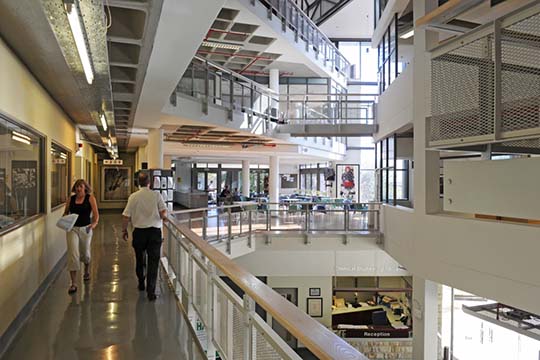
Faculty of Commerce
The largest faculty at UCT, Commerce programmes prepare students for the expanding world of business, professional financial services, and participation in the global economy. The faculty receives strong support from international agencies and remains committed to engagement with the African continent.
Study abroad and exchange students can select courses in the following disciplines:
Study abroad and exchange students can select courses in the following disciplines:
Accounting (ACC)
Economics (ECO)
Finance and Tax (FTX)
Information Systems (INF)Management Studies (BUS)
Marketing (BUS)
Organisational Psychology (BUS)Read the Commerce guidelines on course selection for study abroad and exchange students.
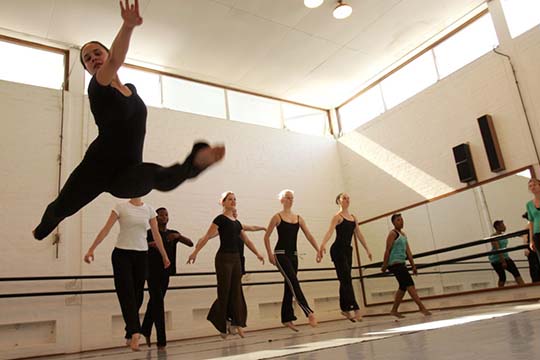
Humanities
The Faculty of Humanities is the second largest faculty at UCT comprising 16 vibrant academic departments located in three main clusters: the arts, the social sciences, and the performing and creative arts. Common to all is a focus on the human condition, in all its dimensions. With four DST/NRF SARChI Research Chairs, two Mellon Research Chairs as well as 86 new and renewed NRF-rated researchers, the faculty enjoys a strong tradition in interdisciplinary research and teaching. Our academics equip students with skills that are crucial for engaging with the material and non-material aspects of being human. We produce exceptional graduates who possess imagination, insight, mental agility and analytical skills. We prepare young people for a variety of career paths in the public and private sectors, in the media space, in the NGO sector and in research and academia.
Study abroad and exchange students can select courses in the following disciplines:
African Languages & Literatures (SLL)
African Feminist Studies (AFS)
African Studies (ASL)
Anthropology (ANS)
English Literary Studies (ELL)
Film & Media Studies (FAM)
Fine Art (FIN)
Historical Studies (HST)
Linguistics (ASL)Modern languages (SLL)
Music (MUZ)
Philosophy (PHI)
Political Studies (POL)
Psychology (PSY)
Religious Studies (REL)
Social Work & Social Development (SWK)
Sociology (SOC)
Theatre, Dance, and Drama (TDP)Humanities hosts the largest proportion of study abroad and exchange students at UCT.
* several courses (including studio-based media production and individual instruction in musical instruments) are not available to study abroad and exchange students
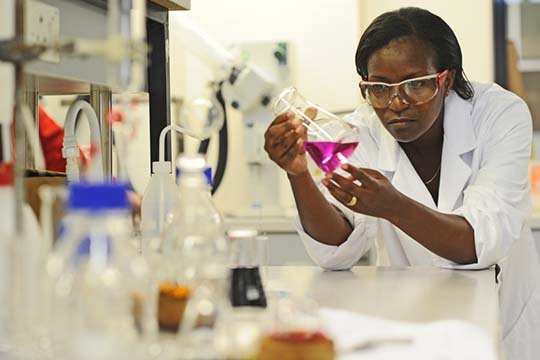
Science
The UCT Faculty of Science is, by various measures, the best in the country: it has the largest number of scientists who have been rated through a rigorous process of international evaluation, and within this group it has the largest number who are acknowledged to be world leaders in their fields, and who hold an “A” rating. Thus undergraduate and postgraduate programmes benefit by being developed and taught side-by-side with cutting-edge research.
Study abroad and exchange students can select courses in the following disciplines:
Archaeology (AGE)
Astronomy, Astrophysics and Space Science (AST)
Biological Sciences (including Ecology and Evolution) (BIO)
Chemistry (CEM)
Computer Science (including Information Technology) (CSC)
Environmental and Geographical Science (including Atmospheric Science) (EGS)Geological Sciences (GEO)
Mathematics and Applied Mathematics (MAM)
Molecular and Cellular Biology (including Genetics) (MCB)
Oceanography (including Marine Biology) (SEA)
Physics (PHY)
Statistical Sciences (STA)
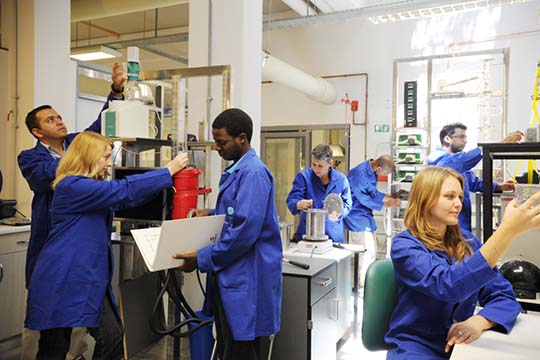
Faculty of Engineering & the Built Environment
In the industrial revolution – the age of the foundation of engineering – there was an assumption that the planet would always have sufficient resources to provide. However, we are now required to develop skills to take into account an understanding of the world – one that recognises that resources are limited; one that appreciates the complexity and inter-relatedness of systems. Instead of a straight line leading from ‘here’ to ‘progress’, there is a need to think about multiple pathways and plurality, diversity and difference. It is the connections and reconnections between people and ideas, networks and flows and the richness of diversity and multiplicity that are key. Against this backdrop of a changing world, the Faculty of Engineering & the Built Environment (EBE) is determined to build on the strengths of the past and to embrace the challenges of the future facing Africa and the global community.
Study abroad and exchange students can select courses in the following disciplines:
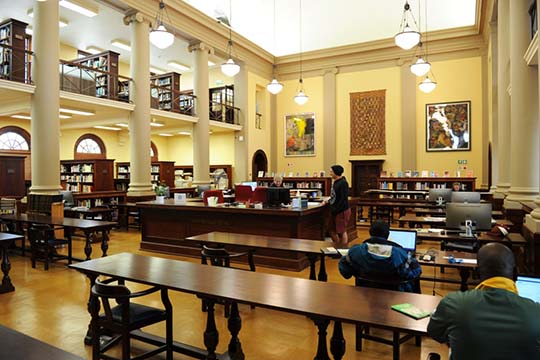
Faculty of Law
The Law faculty attracts excellent students from diverse backgrounds, and this makes for a rich learning environment. Our graduates are highly sought after. Student initiatives such as the Social Justice Seminars and LAWCO are recognised as excellent, and the student leadership (both the Law Students’ Council and the Black Law Students’ Forum) are very strong. Unique to our LLB is the incorporation of 60 hours of community service so our students graduate with a sense of their role in society. In line with our view that teaching should be research-led, the faculty has excellent staff, both as teachers and as researchers, and as leading authors on their subjects. The first DST/NRF SARChI Research Chair in Humanities was given to the faculty; two professors are A-rated researchers and fourteen are NRF-rated researchers. Two of our staff members have been awarded Distinguished Teachers’ Awards and faculty academics have won international teaching awards. Last but not least, the excellent law library is linked to major electronic databases and houses 284 top-class journals and more than 85 000 books.
Study abroad and exchange students can select courses in the following disciplines:
Commercial Law (CML)
Private Law (PVL)
Public Law (PBL)Law offers a number of courses which run over two semesters. Take care to only select courses with a ‘F’ or ‘S’ suffix.
